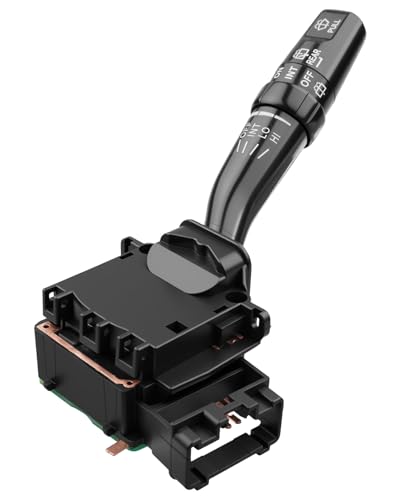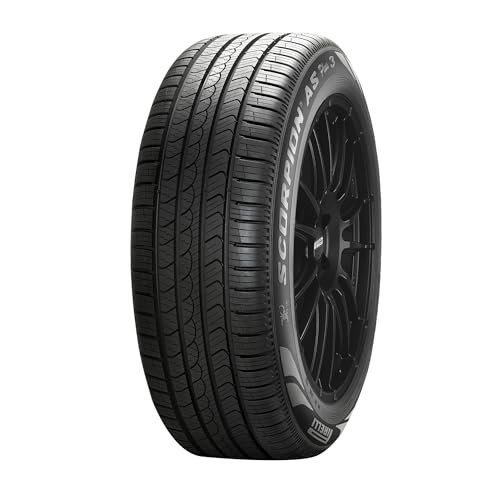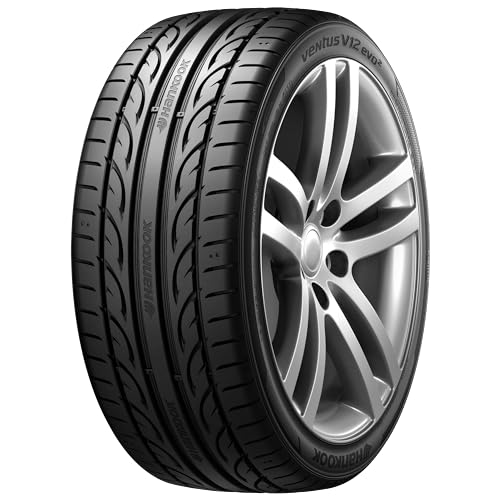There’s a moment every car enthusiast dreads. It’s not a check engine light or a strange noise from the suspension; it’s the slow, dawning realization that your tires are shot. The tread is worn thin, the wet-weather confidence is gone, and you’re facing a bill that can easily climb into the four-figure range for a set of premium performance rubber. This was the exact position I found myself in a few months ago with my daily-driven sport sedan. I craved the sharp handling and grip of a high-performance tire, but my driving reality—a mix of commuting, spirited backroad drives, and the occasional downpour—demanded all-season versatility. The conflict is classic: my performance aspirations were writing checks my practical budget couldn’t cash. This is the tightrope walk that leads drivers down the rabbit hole of budget performance brands, a world filled with tempting prices and uncertain quality. It’s precisely this search for a tire that can deliver thrills without the frills that put the Fullway HP108 Set of 2 All-Season Tires directly in our crosshairs.
- Treadlife: N/A
- Tires Only
What to Look for Before Buying High-Performance All-Season Tires
A performance tire is more than just an item; it’s a key solution for unlocking your vehicle’s potential. It is the single point of contact between thousands of pounds of metal, engineering, and horsepower, and the asphalt beneath. This category of tire is engineered to provide superior grip, responsive handling, and shorter braking distances in both wet and dry conditions compared to a standard passenger or touring tire. The main benefit is a heightened sense of connection and control, transforming a mundane commute into a more engaging experience and providing a critical safety margin when you need to react quickly. Choosing the right set means choosing confidence for every corner, on-ramp, and emergency stop.
The ideal customer for this type of product is someone facing the daily drive in a vehicle with sporting intentions—think a BMW 3-Series, a Honda Civic Si, a Ford Mustang, or a Volkswagen GTI. They value crisp steering response and stability during spirited driving but aren’t willing to sacrifice all-season usability. This tire category might not be suitable for those who live in areas with heavy snowfall, as even the best all-season tire is a compromise in true winter conditions. For them, a dedicated winter tire set is a necessity. Similarly, hardcore track day enthusiasts would be better served by a dedicated summer or “Extreme Performance” tire that prioritizes outright grip over longevity and all-weather capability.
Before investing, consider these crucial points in detail:
- Tire Sizing & Fitment: This is non-negotiable. Using the wrong size tire can compromise safety, handling, and even damage your vehicle. For the Fullway HP108 Set of 2 All-Season Tires, the size is 225/45R17. This means a 225mm section width, a sidewall height that is 45% of that width, and fitment for a 17-inch wheel. The “94W” rating indicates a load index of 1477 pounds per tire and a top speed rating of 168 mph, far exceeding any legal speed limit and ensuring stability at highway speeds.
- Performance Ratings (UTQG): The Uniform Tire Quality Grading (UTQG) is a crucial, if often overlooked, metric. The HP108 has a rating of 380 AA. The “380” treadwear rating suggests a harder, longer-lasting compound than a pure performance tire (which might be 200 or lower), striking a balance between grip and longevity. The “AA” is the most important part for performance seekers: it’s the highest possible rating for both wet and dry traction, indicating exceptional grip and braking capability.
- Materials & Durability: The tire’s compound and construction dictate its character. All-season compounds are formulated to remain pliable in a wide range of temperatures, unlike summer tires which can become hard and slick in the cold. The Fullway HP108 also features an XL (Extra Load) designation. This means it has a reinforced internal construction and stiffer sidewalls, which aids in handling heavy loads and, crucially for performance, reduces sidewall flex during aggressive cornering for a more direct steering feel.
- Ease of Use & Maintenance: Tires require professional installation. This includes mounting on the wheel, balancing to prevent vibration, and a full vehicle alignment to ensure even wear. As one user noted with their BMW, an alignment is critical after installing new tires to get the most out of them. Long-term care is simple but vital: check pressures monthly and rotate the tires every 5,000-7,000 miles to maximize their lifespan.
Keeping these factors in mind, the Fullway HP108 Set of 2 All-Season Tires stands out in several areas, particularly with its impressive UTQG rating at this price point. You can explore its detailed specifications here.
While the Fullway HP108 Set of 2 All-Season Tires is an excellent choice, it’s always wise to see how it stacks up against the competition. For a broader look at what high performance means across different product categories, we highly recommend checking out our complete, in-depth guide:
- Mick Jagger, James Fox (Actors)
- Precise and Responsive Operation: Windshield wiper switch for accurate response with every switch. Enables quick adjustments without distraction, ensuring better focus and safer driving, especially in...
Unboxing and Initial Impressions: The Fullway HP108 Up Close
The pair of Fullway HP108 tires arrived strapped together, emanating that unmistakable, pungent smell of new rubber that gets any car person excited. There’s no fancy packaging with tires; their ruggedness is their calling card. Our first move was to inspect the physical product. The tires felt substantial, with the “XL” rating manifesting as a noticeably stiff and robust sidewall when pressed—a promising sign for responsive handling. The Black Side Wall (BSW) design is clean and understated, forgoing distracting white lettering for a purposeful look that suits any vehicle.
What truly caught our eye was the tread design. It features an asymmetric pattern, a hallmark of modern high-performance all-season tires. The large, solid shoulder blocks on the outer edge are designed for stability and grip during cornering. Toward the inside, you find more intricate siping and grooves, engineered to evacuate water and provide traction in wet or light winter conditions. The four wide, circumferential grooves are deep and well-defined, suggesting a strong defense against hydroplaning. For a tire in the budget category, the design appeared sophisticated and on par with tires costing twice as much. This initial inspection gave us a sense of cautious optimism; on the surface, Fullway wasn’t cutting any obvious corners.
Key Benefits
- Excellent wet and dry traction (UTQG ‘AA’ rating)
- Surprisingly quiet and comfortable for a performance tire
- Stiff XL sidewalls provide responsive handling
- Exceptional performance-to-price value
Drawbacks
- Reports of potential quality control and durability issues
- Not suitable for heavy snow or ice conditions
Putting Rubber to the Road: A Deep Dive into the Fullway HP108’s Performance
A tire’s true character is only revealed on the road. We had the Fullway HP108 Set of 2 All-Season Tires professionally mounted, balanced, and aligned on our test vehicle, a 2015 Volkswagen GTI, a car known for its sharp handling that can easily expose a tire’s weaknesses. Over several weeks and more than a thousand miles of varied driving, we pushed these tires to understand where they excel and where they compromise.
Dry Handling and Cornering Stability
In dry conditions, the Fullway HP108 is genuinely impressive. From the first turn of the wheel, the stiff XL sidewalls made their presence known. Turn-in felt crisp and immediate, with very little of the mushiness or delay you might expect from a budget all-season tire. On winding country roads, we pushed the car into corners at escalating speeds, and the tires held their line with tenacity. The large outer tread blocks provide a stable contact patch, inspiring confidence to carry more speed through a turn than the price tag would suggest. This backs up the experience of one user, a self-proclaimed pro driver and drifter, who noted the “grip is crazy” and that it was far more than he expected, even lasting longer during intense use than some name-brand tires. We found a similar character; the grip is predictable and communicates its limits well. When pushed to the absolute edge, it breaks away progressively rather than snapping loose, giving the driver time to correct. For the enthusiast on a budget who enjoys a spirited drive, these tires deliver a rewarding experience that punches far above their weight class.
All-Season Versatility: Conquering Wet Pavement
Many “performance” tires falter when the skies open up, but the “All-Season” designation on the HP108 isn’t just for show. We encountered several heavy rainstorms during our testing period, providing the perfect opportunity to assess their wet-weather capabilities. The tire’s ‘AA’ UTQG rating sets a high expectation, and we’re happy to report it largely delivers. The four deep circumferential grooves do an admirable job of channeling water away from the contact patch. Driving through standing water on the highway, we felt a strong resistance to hydroplaning at reasonable speeds. Braking performance in the wet was also secure and confident, with minimal drama or ABS intervention during hard stops. Our findings mirror those of a reviewer who installed them on a rear-wheel-drive BMW 330ci, stating that in heavy rain, the difference was night and day. He no longer felt the car was “all over the place” or plowing straight when turning. This stability in adverse conditions is arguably one of the tire’s strongest selling points, making it a reliable choice for drivers in regions with unpredictable weather.
Ride Comfort, Noise, and Daily Drivability
Often, the trade-off for sharp handling is a harsh, noisy ride. Performance tires with stiff sidewalls can transmit every crack and pebble in the road directly into the cabin. We were pleasantly surprised to find the Fullway HP108 strikes an excellent balance. While certainly firmer than a grand touring tire, it was never jarring or uncomfortable. It managed to soak up minor road imperfections without fuss, making it perfectly suitable for the daily commute. Road noise was another area of unexpected refinement. On smooth asphalt, the tires were nearly silent, and on coarser concrete highways, they produced only a faint, low-frequency hum that was easily drowned out by the radio at a low volume. This was confirmed by multiple users, one of whom stated simply, “The tires are super smooth and quiet.” This blend of quiet comfort and responsive handling makes the HP108 a tire you can live with every single day, not just on the weekends.
Durability and Longevity: The Million-Dollar Question
This is where our review must take a critical turn. The UTQG treadwear rating of 380 suggests a reasonably long life, and our experience, along with some user feedback, supports this. One high-mileage driver reported putting over 2,000 miles on them, including a long road trip, with “no signs of wear.” This indicates that a properly manufactured set of HP108s can indeed offer good value and longevity. However, we cannot ignore the troubling reports from other users that point to significant quality control issues. We found several credible accounts of catastrophic failures. One user described a tire developing broken belts within four months, while another experienced a sudden blowout on the highway. A third reported a tire “peeling and shedding like dead skin” after just six months. These are not minor flaws; they are critical safety failures. This dichotomy suggests a potential inconsistency in the manufacturing process. While our test set has performed flawlessly, the risk of receiving a defective unit is a serious consideration. This is the inherent gamble with many ultra-low-cost brands: you may get a product that performs at 90% of a premium competitor for 40% of the price, or you may get a dud. It’s a critical factor that every potential buyer must weigh against the significant cost savings.
What Other Users Are Saying
Synthesizing feedback from other drivers reveals a clear pattern. The overwhelming majority of positive sentiment focuses on the incredible value proposition. Phrases like “absolutely the best for the buck” and praise for the “crazy” grip are common. Drivers who use their cars for spirited driving, and even light drifting, are consistently surprised by the level of performance offered at such a low price point. The positive comments on the quiet and smooth ride further cement its status as a great all-arounder for daily use.
However, the negative feedback, while less frequent, is far more severe. The reports of premature and catastrophic failures are a serious red flag. When a user states that “both tires have broken belts” after just four months of normal driving, it points to potential manufacturing defects rather than user error or abuse. Another comment about a tire “peeling” raises similar concerns about the quality of the rubber compound or the bonding process. This feedback paints a picture of a product with high performance potential but questionable consistency, which is a crucial consideration for any component so integral to vehicle safety.
How Does the Fullway HP108 Compare to the Competition?
No product exists in a vacuum. To truly understand the Fullway HP108 Set of 2 All-Season Tires‘s place in the market, it’s essential to compare it against relevant alternatives, each catering to a slightly different driver.
1. Pirelli Scorpion All Season Plus 3 SUV/Crossover Tire
- Designed for use on CUVs, SUVs, and light trucks
- Innovative tread compound is designed to go the extra mile while delivering all-season confidence
This comparison highlights the importance of vehicle type. The Pirelli Scorpion is a premium touring tire designed specifically for SUVs and Crossovers. While it also boasts all-season capability, its design priorities are different. It focuses on maximizing ride comfort, quietness, and delivering a very long tread life for heavier vehicles. An SUV owner would choose the Pirelli for its brand reputation, extensive warranty, and proven track record in comfort and longevity. The Fullway HP108 is not designed for such vehicles; it is a performance-oriented tire for passenger cars, prioritizing handling response and grip over ultimate comfort and treadwear, and appealing to a far more budget-conscious buyer.
2. Fullway HP108 All-Season Performance Tires
- Treadlife: N/A
- Tires Only
This alternative is the same tire, the Fullway HP108, but in a different size (225/45R18) for 18-inch wheels. The choice here is dictated entirely by your vehicle’s specifications. Performance characteristics will be nearly identical between the 17-inch and 18-inch versions. However, a driver moving to the 18-inch tire can generally expect a slightly firmer ride and marginally sharper steering response due to the shorter, stiffer sidewall. If you like everything about the HP108 we’ve reviewed but your car is equipped with 18-inch wheels, this is your direct equivalent.
3. HANKOOK Ventus V12 evo 2 Summer Tire
- Hankook Ventus V12 evo 2 Summer Radial Tire - 245/40R18 Y
- The Package Height of the Product is 9.7 inches
This is the most direct philosophical competitor. The Hankook Ventus V12 is a well-regarded “Ultra High Performance” summer tire from a reputable mid-tier manufacturer. In warm, dry, or damp conditions, the Hankook will outperform the Fullway, offering higher levels of grip and an even more connected feel. However, it is a dedicated summer tire. Its compound will harden and lose significant traction in temperatures below 45°F (7°C), making it unsafe in cold weather or any hint of snow. The Fullway HP108 is for the driver in a temperate climate who needs one set of tires year-round. The Hankook is for the performance purist in a warm climate or the enthusiast who has a separate set of winter tires.
The Final Verdict: Is the Fullway HP108 Set of 2 All-Season Tires a Smart Buy?
After extensive testing and analysis, our verdict on the Fullway HP108 Set of 2 All-Season Tires is one of qualified, enthusiastic recommendation. On a pure performance-per-dollar basis, it is an absolute giant-killer. It provides dry grip, wet-weather confidence, and responsive handling that genuinely rivals tires from major brands costing two or even three times as much. For the budget-conscious enthusiast looking to sharpen their car’s reflexes without emptying their wallet, the HP108 presents a nearly irresistible value proposition.
However, this value comes with a significant caveat: the shadow of potential quality control issues. While our set performed flawlessly, the credible reports of premature failures cannot be ignored. This tire is therefore best suited for the discerning and hands-on car owner who regularly inspects their equipment and understands the risks associated with budget brands. It may not be the best choice for a driver who simply wants the most reliable, “fit-it-and-forget-it” option. If you understand the trade-off and are willing to accept the risk for the massive potential reward in performance and savings, the Fullway HP108 is one of the smartest buys on the market today.
If you’ve decided the Fullway HP108 Set of 2 All-Season Tires is the right fit, you can check its current price and purchase it here.
Last update on 2025-10-18 / Affiliate links / Images from Amazon Product Advertising API


![Performance (The Criterion Collection) [Blu-ray]](https://m.media-amazon.com/images/I/41fnOVHHSrL.jpg)




